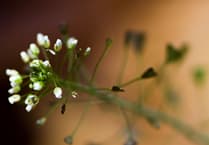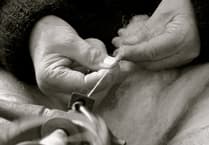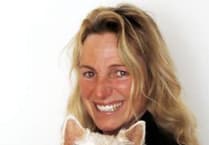It’s a big question but who cares about nature?
For those of us of a certain age, the need to use windscreen wipers to clean off the splattered insects when driving is a distinct memory. As a child playing in the ruins of the old Heston aerodrome I recall clouds of butterflies; grasshoppers’ shrill deafening my little ears, ponds teeming with newts and frogs, and birds calling in symphony. We used to play all day, the dusk chasing us home for tea.
Fast forward to my years working as a Galapagos Islands Naturalist guide; the abundance of diverse and unique creatures on land, in the air and below the waters was exhilarating. Living and working in one of the earth’s greatest Biosphere Reserves.
Fast forward to my years working with the BBC Natural History Unit, helping to produce films of sheer wonder and awesome natural beauty which captivated the millions that watched and listened to the magical narration of Sir David Attenborough.
Fast forward to 2001 when I came to the Forest of Dean to set up home in the company of trees. Curlews burbling, cuckoos cuckooing, swifts screaming, swallows on the telegraph lines in their hundreds. Bats in the garden catching the plentiful moths that flew on moonlit nights. Salmon and glass eels in our beautiful Wye.
And now they’ve gone or are disappearing fast, their names removed from the children’s dictionary. Robert Macfarlane’s book, Lost Words, began as a response to the removal of everyday nature words - among them "acorn", "bluebell", "kingfisher" and "wren" - because those words were not being used enough by children to merit inclusion.
As my Dad said to me, “What the eye doesn’t see, the heart doesn’t grieve over.”
How therefore do we begin to encourage young people to look after something they don’t know, protect something they won’t see and love something they will never experience? But encourage them we must else what a lonely world we leave them.
According to Benedict MacDonald, in his book Rebirding, the following birds are now likely absent from our statutory Forest – nightingales, pied flycatchers and wood warblers. Why is this? It’s my suggestion that the calamitous drop in insect populations (by 65%+ and declining) may be partly to blame. Birds that eat insects are starving. Millions of insects are dying from the continued use of herbicides and pesticides.Those attracted to street and garden lights beat themselves against them until they are exhausted and die, in their thousands. Windscreens are clear.
So what, you say? Well here’s the honest truth. Seeing such wonderful wildlife moved me so deeply that I vowed that I would give them something back. As a councillor I campaign for protection of our natural heritage for future generations to enjoy. Thanks to the Green Party who understand the tragic wildlife crisis, I have been asked to stand for parliament at the general election, to speak truth to power and work tirelessly to stand up for people and nature.




